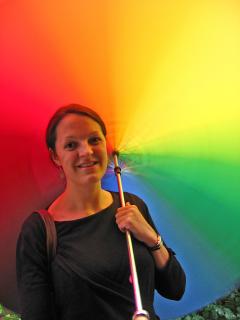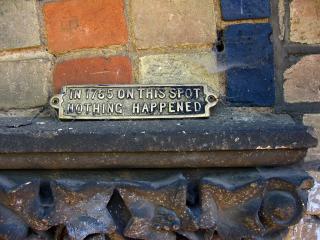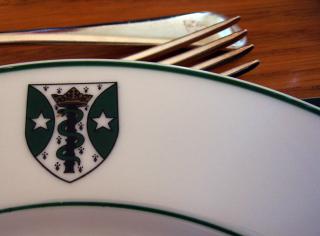
When I was in the process of applying to Oxford, I filled out a web questionnaire about stress. A few months ago, I was invited to participate in a study and given a two-hour screening. Today, the active part of the experiment began. I know it involves mood and stress, but I don’t have a terribly good idea of what they are looking for.
Today’s poking and prodding
They tested my ability to remember long lists of different kinds of things, particularly after being distracted in various ways. They tested my spatial reasoning in a number of paper and computer based exercises. One annoying one was trying to pick out four different three-digit sequences from a rapid string of numbers, pressing a button when I saw one of them. Because you mind tends to break up the string into a distinct series of three digit numbers, this is extremely hard. 233453456 becomes 233 453 456 starting at wherever you started thinking about it. As such, it is hard to see that 334, for instance, is part of the sequence.
One unusual bit involved playing a betting game on a computer. It showed two bars per screen, yellow in situations where I could win points and blue in those where I could lose them. Some bars were solid and had a single number on them. If you picked them, you were certain to win or lose that amount. Most were split into two fractions, where one was 1/3 of the bar or smaller. Usually, the choice being made was between the certainty of winning or losing a small amount for sure and the possibility of winning or losing more. For example, you might have to choose between a 2/3 chance of losing a small amount and a 1/3 chance of losing a larger amount or a 9/10 chance of losing nothing and a 1/10 chance to losing an even larger amount.
The curious thing is that, as far as my limited arithmetical abilities under such circumstances could be trusted, the bars were always very close to being or exactly statistically equivalent. For instance, you had the option of a guaranteed 66 points or a 1/3 chance at 200 points. As such, as the game went on, I found myself always choosing the ‘safe’ option. This was because I didn’t know the number of trials. You would expect the numbers to be the same for either strategy over the long term. After one million trials, it wouldn’t matter if you had chosen ’33 for sure’ or ‘1/3 of 100’ in every trial, or used any combination of them. If there were a small number of trials, however, choosing the option with more stable returns is less likely to generate an outlying number of points (high or low).
As the game went on, I thought I was doing no better than breaking even. At the end, it said I had over 10,000 points. Of course, it may just have been saying that. You can never be sure what is actually being tested in such experiments. The last, little thing that tends to happen at the end frequently seems to be the most important bit of the whole sequence. Regardless of whether the figure was meant to toy with my emotions or not, I am pretty sure I will get about another £10 at the end of the experiment for it.
In addition to all that, I was asked to tell little stories in response to words, provide definitions to others, and fill out lots of questionnaires about mood and my (non-existent) gambling habits. When called upon to define the words, I felt a bit like Blackadder when he was trying to re-write Samuel Johnson’s dictionary in one night.
The week ahead
For the next week, I need to wear an accelerometer and light meter, as well as keep a diary of eating, sleeping, and exercise. I am meant to wear the measuring equipment as much as possible, though I am not allowed to get it wet or bare-fist box while it is on my wrist. At the end of the week, they are giving me a functional magnetic resonance imaging scan, a diffusion tensor imaging scan, and testing my cortisone levels.
There are 40 other participants, so the total amount of data generated seems very considerable. I hope they find some interesting stuff in there.
PS. Back in March 2006, I hoped the money from this experiment would help me buy a bike. Funny how slowly some things can proceed…
PPS. One of the pictures associated with the Wikipedia article on DTI scans was used in an Economist article this week about synesthesia.





